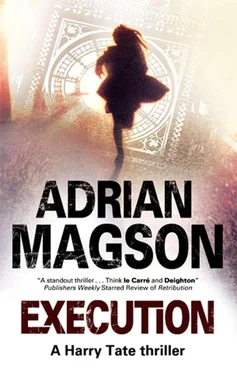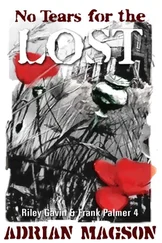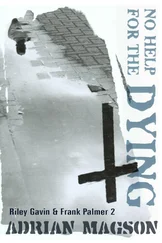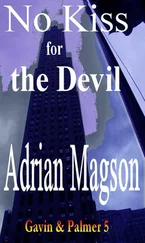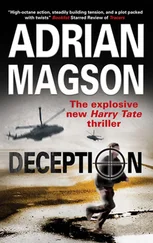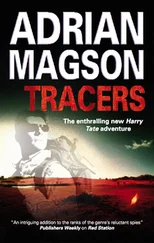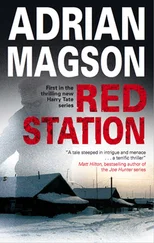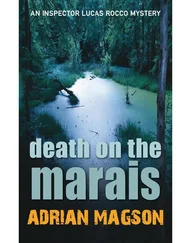Adrian Magson - Execution
Здесь есть возможность читать онлайн «Adrian Magson - Execution» весь текст электронной книги совершенно бесплатно (целиком полную версию без сокращений). В некоторых случаях можно слушать аудио, скачать через торрент в формате fb2 и присутствует краткое содержание. Год выпуска: 2013, Издательство: Severn House Publishers, Жанр: Триллер, на английском языке. Описание произведения, (предисловие) а так же отзывы посетителей доступны на портале библиотеки ЛибКат.
- Название:Execution
- Автор:
- Издательство:Severn House Publishers
- Жанр:
- Год:2013
- ISBN:нет данных
- Рейтинг книги:5 / 5. Голосов: 1
-
Избранное:Добавить в избранное
- Отзывы:
-
Ваша оценка:
- 100
- 1
- 2
- 3
- 4
- 5
Execution: краткое содержание, описание и аннотация
Предлагаем к чтению аннотацию, описание, краткое содержание или предисловие (зависит от того, что написал сам автор книги «Execution»). Если вы не нашли необходимую информацию о книге — напишите в комментариях, мы постараемся отыскать её.
Execution — читать онлайн бесплатно полную книгу (весь текст) целиком
Ниже представлен текст книги, разбитый по страницам. Система сохранения места последней прочитанной страницы, позволяет с удобством читать онлайн бесплатно книгу «Execution», без необходимости каждый раз заново искать на чём Вы остановились. Поставьте закладку, и сможете в любой момент перейти на страницу, на которой закончили чтение.
Интервал:
Закладка:
‘It has been confirmed,’ Richard Ballatyne announced, at a nod from a man chairing the meeting, ‘that Roman Tobinskiy was found dead in his room at King’s College Hospital the night before last.’
The five men and one woman around the conference table with him were silent. Most looked surprised by the news. There had been no need to explain who Tobinskiy was, since they were all well-acquainted with his history.
Roman Vladimirovich Tobinskiy was a former FSB officer who, like his friend and former colleague Alexander Litvinenko, had grown disenchanted with the Russian security agency and the government’s alleged involvement in violence against its own people for political gain. After following Litvinenko’s move out of the FSB and into exile abroad, Tobinskiy had dropped out of sight, fearing reprisals against him by his former masters. His concerns had not been ill-founded; in November 2006, Litvinenko, who had become an open critic of the Russian government and President Putin in books and the media, had fallen ill in London and later died. The cause was diagnosed as severe radiation poisoning by an isotope, Polonium 210, administered, it was reported, in a cup of tea. It had caused a worldwide scandal and once more highlighted the deadly reputation the Russian specialist security agencies had of following their enemies and dissidents abroad and silencing them.
Nothing had been heard of Tobinskiy other than a brief report that he had allegedly voiced his suspicions through a media mouthpiece that the FSB had acted on orders from the Kremlin to silence critics such as Litvinenko and himself. His precise whereabouts had been unknown for some years, although many suspected he had been in hiding in the United States.
The first to venture a question was the man at the head of the table. Deputy Director of MI6, Sir Callum Fitzgerald, waved a slim mobile phone in the air. ‘What was the cause of death?’
‘We’re awaiting the results of tests. Early indications suggest it was a heart attack brought on by complications from gunshot injuries received several days ago.’
‘You called this meeting, Richard,’ Fitzgerald said, ‘as you have every right to do. For that reason and by your tone, are we to assume that you don’t believe it was a heart attack?’
‘In view of the dead man’s history, sir, no. I don’t.’
It wasn’t the main reason Ballatyne had called for the meeting; Tobinskiy dying anywhere in the world would have been suspicious enough for anyone. But the fact that he was in London and clearly under official protection of some kind at the time of his death was something that needed airing. And Fitzgerald had just done what he’d been hoping, which was to ask the right question.
‘How is it we didn’t hear about Tobinskiy’s presence here until now?’
‘Deliberate cut-outs,’ Ballatyne responded simply. ‘Left hand knowing he was there, forgot to tell right hand when and why.’ He kept his face neutral, but his tone was clearly angry. ‘His gunshot injuries weren’t considered life-threatening, but he was placed in the Major Trauma Centre at King’s by the Russian desk, something they hadn’t got round to telling the rest of us.’ He turned his attention on the one person who hadn’t seemed surprised by the news of Tobinskiy’s death, a woman at the far end of the table.
A blonde with large, frameless glasses and an intense, studied air about her, Candida Deane was deputy director of the Russian Desk, standing in for the director who was recovering from a lengthy illness.
If Ballatyne felt any reservations about turning on a colleague, he didn’t show it. Like everyone else, he’d been caught on the hop by this development, revealed only when he enquired into the disappearance of Clare Jardine with the hospital authorities. The idea that she had been lying in a room next to a staunch Russian opponent of Vladimir Putin — an opponent known to have been on a search-and-kill list by the Russian FSB for some years — had come as a shock. Now he wanted some answers and he was going to push until he got them.
Not that it would help Tobinskiy any.
‘There was no need to copy other sections on the detail, that’s why,’ Deane replied crisply, her glasses flashing. Her voice carried a distinctly south London edge, considered by detractors to be a sign of the new tide of ‘talent’ being flushed through the Service as the reliance on the old Oxbridge source of recruiting was losing ground. She didn’t believe in making friends and was known to have her eye on one of the top jobs in the Service. Her uncompromising demeanour showed her intentions for all to see, and she didn’t care who knew it. ‘He had to be kept safe while he recovered. We took the decision to keep it strictly in-section only.’ She stared coolly at Ballatyne, daring him to challenge her.
‘Safe from what?’ Fitzgerald’s voice was calm, almost bored, but there was no mistaking the look in his eye; given the high-profile nature of the dead man and the potential repercussions, he too, wanted answers.
Deane shifted in her seat. ‘Tobinskiy was caught up in a shooting in a Brighton nightclub a week ago. According to witnesses the shooter walked straight up to him and shouted something in an east-European language before opening fire. It wasn’t the first time there had been trouble with Lithuanians or Albanians in the local drugs trade, so it was written up by the police as another gang-related hit.’
‘What happened to the shooter?’
‘He got away. The injured man was taken to the Royal Sussex. He had no ID on him, but one of my officers heard about it and recognised him. We got him out of there immediately.’
‘And hid him among wounded military personnel?’ Fitzgerald looked puzzled, although whether it was at Tobinskiy’s final refuge or what an officer of MI6 was doing in the Royal Sussex Hospital at the time wasn’t clear. ‘Was that wise?’
Deane flushed. ‘It seemed a good idea at the time and I stand by it.’
‘He wasn’t that well concealed, was he?’ commented a man with a bushy head of hair. His name was Andrews and headed up the internal security section. ‘Somebody found him. If you’d let us know, we could have looked after him properly.’
‘There wasn’t time. We had one extra man on duty. Placing too much security on that unit would have attracted media attention. They already keep a watch to see who goes in there, hoping for some Special Forces personnel to put under the microscope. The duty guard must have wandered off.’ She looked at Ballatyne. ‘In any case, there has already been a precedent for stowing non-military patients in that unit by members of this Service. Isn’t that right?’
All eyes swivelled like spectators at a tennis match towards this new focus of attention, and Ballatyne silently cursed the woman to hell and back for her indiscretion. But it was too late now; in defending herself, she had effectively swung the spotlight his way.
‘You had better explain,’ said Fitzgerald with a sigh, flicking a finger towards the red light on the digital unit in the ceiling. ‘For the record.’
Ballatyne did so with reluctance. Words uttered here without great care could sometimes prove fatal for a career, often long after the event. ‘It’s correct that another patient in the unit was a former Six officer named Clare Jardine. She was shot and wounded during an operation against the organisation known as the Protectory. The man responsible was a Bosnian named Milan Zubac, one of their enforcers. As you may recall, they were preying on deserters from the army, looking for information to sell to the highest bidder, before killing off the people concerned.’
‘Yes, we know who they were,’ said Deane aggressively. ‘But if memory serves me well, hadn’t Jardine already been dismissed from the Service after murdering one of our own officers?’ She frowned dramatically at the ceiling. ‘Let me see. . Sir Anthony Bellingham, wasn’t it? Stabbed just along the embankment from here, if memory serves me right. How the hell she wasn’t locked up in a maximum security cell for a hundred years is beyond me.’
Читать дальшеИнтервал:
Закладка:
Похожие книги на «Execution»
Представляем Вашему вниманию похожие книги на «Execution» списком для выбора. Мы отобрали схожую по названию и смыслу литературу в надежде предоставить читателям больше вариантов отыскать новые, интересные, ещё непрочитанные произведения.
Обсуждение, отзывы о книге «Execution» и просто собственные мнения читателей. Оставьте ваши комментарии, напишите, что Вы думаете о произведении, его смысле или главных героях. Укажите что конкретно понравилось, а что нет, и почему Вы так считаете.
